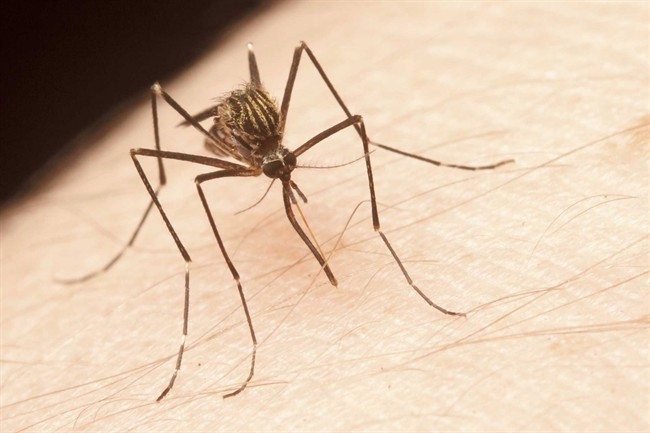As health officials in Brazil grapple with the largest outbreak of Zika virus so far, Canadian infectious disease experts are warning that the Rio Summer Olympics may be a catalyst for spreading the virus abroad.

In new research released Thursday night, Canadian experts in global disease surveillance say that the mosquito-borne virus could make its way into Florida, southern Texas and Mexico.
They zeroed in on a handful of regions after tracking travel patterns out of Brazil and locating regions that offer good conditions for Zika virus to thrive.
“People might go to Brazil, get the infection and bring it home to their home country and if they’re living in an area conducive for seasonal or year-round transmission, the infection will be present in a new area. We don’t even need to wait for the Olympics to happen, it’s happening now,” warned Dr. Isaac Bogoch, a tropical infectious disease specialist at Toronto General Hospital and the University of Toronto.
READ MORE: Canadian researchers develop disease outbreak surveillance
- Ontario influenza ICU admissions up 127% in past week, hospital association warns
- 3 kids die from influenza A-related complications since start of December in Ontario
- Hanukkah begins this weekend. What to know and how it’s celebrated
- Almost 200 children conceived from sperm donor with cancer-causing gene
Zika virus, originally identified in Uganda, is garnering international attention. Like Dengue, West Nile and Yellow fever, Zika virus is a mosquito-borne tropical disease, meaning the blood-sucking insects transmit the disease to humans.

Get weekly health news
Only a specific type of mosquito – called the Aedes mosquito – carries and transmits the virus.
It’s typically a mild illness, but health officials are looking into its potential link to neurological defects in newborn babies in Brazil.
For their research, Bogoch and his team took a two-pronged approach: first, they looked at climate temperatures and mosquito patterns to determine which areas of the world are suitable for Zika virus transmission. Central America, South America, the Caribbean and even parts of the southern United States were prime candidates.
READ MORE: 5 things Canadians need to know about Zika virus
Then, they looked at travel patterns – using flight data from airports in Brazil from September 2014 and August 2015, they figured out which countries could receive a lot of passengers from affected areas of Brazil.
Traveller volumes were highest from Brazilian airports to the United States, followed by Argentina, Chile, Italy, Portugal and France.
The United States, Argentina and most of Central and South America surfaced as high-risk areas for potential spread.
Canada, for its part, faces a different kind of risk. Travellers could be infected if they visit an affected region and get bitten by a mosquito carrying the virus.
READ MORE: Canadian scientists pioneer new formula in airport screening screening
But Canada doesn’t have mosquitoes that can carry and transmit the virus and the disease can’t be passed from person-to-person.
“We wouldn’t be worried about any outbreak, but I’d still caution Canadian travellers going to areas with Zika virus, especially pregnant women or women who may become pregnant,” Bogoch warned.
For now, the scientists are using their findings to collaborate with health officials in regions they identified as high-risk. Informing the public, and implementing mosquito control measures could help stave off the spread, he said.
READ MORE: Why some Canadians are more prone to mosquito bites than others
The team is also monitoring travel to and from Brazil during the Summer Games, just like they did during the Summer Games in 2012 in London, U.K. Their hope is to anticipate outbreaks in real time instead of reacting to outbreaks that have already surfaced.
Bogoch says travellers to Brazil can take precautionary measures by wearing long-sleeved shirts and long pants and wearing mosquito repellant whenever possible. It’s tricky for the country to reel in the spread, though.
READ MORE: CDC warns of Zika virus in BC
“It’s hard to contain something like this. It’s challenging with the mobility of people and it involves immense mosquito control measures,” Bogoch explained to Global News.
He and his colleagues’ full findings were published in the scientific journal, The Lancet.
Read the research letter here.
carmen.chai@globalnews.ca
Follow @Carmen_Chai








Comments